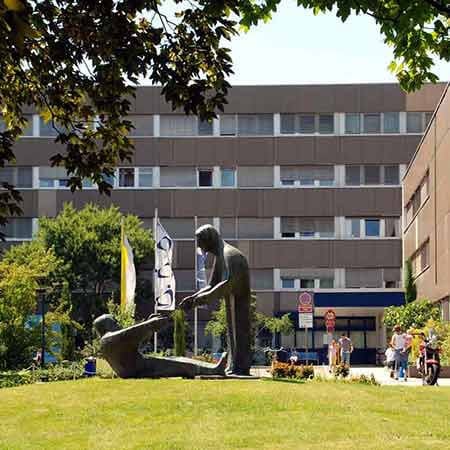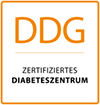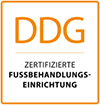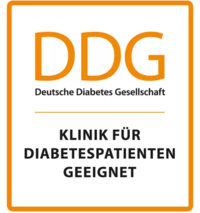Esophageal cancer is a severe oncological disease that is difficult to cure. Surgical interventions for tumor removal are complex and traumatic. However, the treatment in Germany is more sparing and safer: doctors often perform minimally invasive and hybrid surgery, using endoscopic, laparoscopic, and thoracoscopic access. This country uses the very latest options of radiation therapy and drug therapy for cancer, with modern drugs for targeted therapy and immunotherapy.
Content
- Surgical treatment
- Radiation therapy
- Drug therapy
- Palliative endoscopic procedures and operations
- Why is it worth undergoing cancer treatment in Germany
Surgical treatment
The main treatment option for esophageal cancer is surgery. This is the only method that can cure the disease completely.
Endoscopic mucosal resection is a minimally invasive operation, performed from inside the esophagus. The doctor inserts long, thin instruments through the oral cavity. He performs all manipulations under the guidance of a video camera with lighting. Only the area of the mucous membrane with the tumor is removed.
This operation provides a better quality of life for patients with esophageal cancer. The organ and its function are fully preserved. However, the intervention can only be performed at the early stage of the disease, as well as in precancerous processes.
Possible complications of endoscopic resection are as follows:
- bleeding – to stop it, an additional endoscopic procedure is required to "cauterize" the bleeding vessel;
- strictures – the formation of a large scar at the site of the cancer removal, which may prevent the passage of the food bolus (the scar can subsequently be removed using a minimally invasive technique, during an endoscopic procedure);
- perforation – it is a rare but very dangerous complication, in which a hole appears in the esophagus (surgical intervention is required to close it).
To minimize the risk of complications from an endoscopic, esophageal, minimally invasive surgery, it is best to undergo treatment in specialized centers. When the surgery is performed by a doctor who has vast experience in such interventions, the likelihood of complications approaches zero.
After surgery, the lifelong use of proton pump inhibitors, drugs that block gastric secretion, is required. They reduce the risk of cancer recurrence.
Esophagectomy is the main method of surgical treatment of esophageal cancer. Cancer more often than not, grows in the lower part of the esophagus, which is close to the stomach. In this case, the patient requires the removal of approximately 10 cm of the esophagus, as well as the part of the stomach adjacent to it. The ends are sutured together to ensure the normal passage of the food bolus.
If the cancer is located in the middle part of the esophagus, most of this organ must be removed. Then, the stomach is moved up. As a result, the patient can eat food, the esophagus just becomes much shorter. If the problem cannot be solved by simply moving the stomach, a portion of the esophagus is reconstructed from a piece of the patient's intestine. It is important to move it without damaging the vessels. Otherwise, the autograft will fail.
Surgical approaches for esophagectomy differ, depending on the location of the cancer, as well as the surgeon’s preference. The operations can be performed through incisions:
- on the abdomen only, with the dissection of the diaphragm;
- on the thorax;
- on the thorax and abdomen;
- on the thorax, abdomen and neck.
Minimally invasive esophagectomy (MIE) is a surgical option through short incisions in the thorax and abdomen. The doctor uses laparoscopy and thoracoscopy. He performs the operation with long, thin instruments, under the guidance of a tiny video camera. This is a technically complex operation. A minimally invasive esophagectomy must be performed in a specialized center to obtain the same oncological results that open surgery provides. According to H. Osugi et al., a surgeon must perform at least 35 minimally invasive operations in order to do them well. Some of the leading doctors at German oncology centers have experience in performing more than 1,000 minimally invasive operations to remove the esophagus.
Hybrid minimally invasive esophagectomy (HMIE) is a combination of open and minimally invasive organ removal techniques. As a rule, the operation is performed through a large incision in the thorax, and is complemented by a minimally invasive laparoscopic mobilization of the stomach.
Lymph node dissection is a mandatory step in an operation to remove the tumor. Doctors remove at least 15 lymph nodes to examine them and determine the exact stage of the disease. The presence or absence of metastases in them dictates how the patient will be treated after surgery.
Radiation therapy
Radiation therapy for esophageal cancer is used in the following cases:
- in the case of an inoperable tumor, which accounts for the majority of cases of the disease – for local control of the neoplasm and increasing life expectancy;
- before surgery – to reduce the tumor size;
- after surgery, to reduce the risk of recurrence;
- when the disease is beyond the stage one-three, to eliminate and prevent complications (palliative radiation therapy).
Irradiation options:
- external beam radiation therapy is the most common type of cancer treatment in German hospitals;
- brachytherapy is usually used for palliative purposes, in patients with advanced cancer.
Hospitals in Germany use advanced methods of external beam radiation therapy. They are very accurate and safe, allowing the delivery of the required dose of radiation exactly to the target and reducing the risk of complications to healthy tissues. Whenever possible, radiation and chemotherapy are carried out simultaneously, as part of chemoradiotherapy. It is more toxic than the sequential use of the two methods, but it is also more effective.
Some oncology clinics use brachytherapy. This is a contact type of irradiation. It involves the introduction of radioactive seeds into the esophagus. The radiation travels a short distance, so brachytherapy is safer than external beam radiation. It is usually used to destroy the part of the tumor that blocks the passage of the food bolus through the esophagus. As a result, the patient's manifestations of dysphagia (swallowing disorders) are reduced.
Types of brachytherapy:
- low-energy is a single irradiation of the tumor, with low doses of radiation for 1-2 days in a row, during this time the patient stays in hospital;
- high-energy requires several sessions, but radioactive sources are introduced into the esophagus for only a few minutes, so the procedure takes a minimum amount of time and does not require hospitalization.
Several leading hospitals in Germany use proton therapy. This is the safest option for external beam radiation therapy, for which protons are used instead of photons. These particles release energy only when they reach the target, and they spread almost no radiation as they pass through the healthy tissue. Such accuracy is especially important when the neoplasm is localized in the neck area, since there are large vessels, nerves and important organs nearby. Proton therapy is most often carried out at the University Hospital Heidelberg and the University Hospital Essen.
Drug therapy
Chemotherapy is usually used at the same time as radiation therapy. It is used both after and before surgery to remove esophageal cancer. In addition, chemotherapy has become the main method of cancer control in the advanced form of the disease with metastases.
If chemotherapy is used in disease beyond the stage 1-3, doctors often use ECF and DCF regimens to control the tumor growth and metastases. They are usually combined with targeted therapy.
Targeted therapy for esophageal cancer is carried out using the following groups of drugs:
- HER2 inhibitors, including antibody-drug conjugates – these are used for HER2-positive esophageal cancer;
- VEGF inhibitors – these are used to inhibit the growth of blood vessels, which are necessary to supply the tumor;
- TRK inhibitors – these are used infrequently in patients with NTRK gene mutations.
Immunotherapy is also used for esophageal cancer treatment in Germany. Doctors carry out treatment of advanced disease with immune checkpoint inhibitors. They target PD-1 proteins. The mechanism of action of these drugs is based on enhancing the antitumor immune response. The drugs help immune cells see and attack the cancer cells better.
Palliative endoscopic procedures and operations
Palliative intervention does not cure oncology, but improves the quality and duration of the patient's life, as well as preventing and eliminating any complications. In addition, palliative procedures create good conditions for systemic cancer therapy.
The main problem that patients face is esophageal stricture, due to tumor obstruction and impaired passage of the food bolus. To treat dysphagia in Germany, modern methods are used:
- photodynamic therapy;
- radiofrequency ablation;
- laser ablation;
- argon plasma coagulation;
- stent implantation into the esophagus.
Photodynamic therapy involves the destruction of the tumor in the esophageal lumen, which is minimally traumatic for the patient. Doctors inject porfimer sodium intravenously, which accumulates in the cancer cells. A few days later, an endoscopic procedure is performed: doctors irradiate the tumor with a special laser beam. The photosensitizer is activated and destroys the cancer cells from the inside. A few days later, the doctor removes the necrotic tissue from the esophagus using an endoscopic procedure.
The main advantage of photodynamic therapy is that it selectively destroys cancer cells, but does not damage any healthy tissue. As a result, the patient gains the elimination of the tumor obstruction, with a minimal risk of complications. A small amount of the drug accumulates in the healthy tissues, so the patient should avoid bright light for 4-6 weeks after the injection.
To dilate the esophageal lumen, doctors often use various ablation options. In Germany, electrocoagulation is used less and less often, as it is more traumatic, leads to the destruction and charring of tissues located near the tumor, and more often than not, causes the formation of scars inside the esophagus. Therefore, doctors prefer laser and argon plasma coagulation. These methods allow the specialists to destroy the part of the tumor protruding into the esophagus, with a minimal risk of complications.
After ablation or photodynamic therapy, the tumor continues to grow, so it is necessary to take measures to prevent recurrent esophageal obstruction. For this purpose, a stent is placed inside the organ. A stent is a frame that keeps the organ open, preventing the tumor from filling the space inside the esophagus or squeezing it from the outside. Metal stents are usually used – they are more reliable than plastic ones. The stent is placed into the esophagus using an endoscopic procedure.
Why is it worth undergoing cancer treatment in Germany
Cancer treatment in medical clinics in Germany is carried out using the very latest techniques: they are safe, minimally traumatic, and provide a high probability of cancer cure. There are a few reasons for you to undergo treatment in this country:
- in the early stages of cancer, the tumor is removed from the inside of the esophagus, without skin incisions;
- not only open, but also minimally invasive (laparoscopy and thoracoscopy) operations are used for the surgical treatment of esophageal cancer: these are more sparing, less traumatic, and associated with a rapid recovery in patients;
- if it is impossible to perform minimally invasive interventions, hybrid operations are performed: these are less traumatic compared to standard open surgery;
- esophageal reconstructions from a fragment of the intestine are performed, which makes it possible to successfully remove even a large tumor and avoid gastrostomy (the patient will be able to eat food with his own mouth, not through a tube in the stomach);
- the use of the very latest options for cancer radiation therapy, including intensity-modulated radiation therapy and proton therapy;
- minimal risk of post-radiation complications due to the high accuracy of cancer irradiation;
- the possibility of safe irradiation even to cervical esophageal cancer;
- the use of the most effective chemotherapy regimens, according to international protocols;
- chemotherapy is complemented by targeted therapy and immunotherapy.
To undergo surgical treatment of esophageal cancer in Germany, please use the Booking Health service. On our website, you have the opportunity to read up-to-date and accurate information about the cost of treatment in Germany, compare prices in different German hospitals, and book a medical care program at a favorable price. The treatment will be easier and faster for you, and the cost of treatment in Germany will be lower. The average prices are as follows:
- Surgical treatment of esophageal cancer with resection and reconstruction from small intestine tissues – 39,100 EUR
- Brachytherapy in esophageal cancer – 21,600 EUR
- Treatment of esophageal cancer with chemotherapy – 8,900 EUR
The average price of rehabilitation after esophageal cancer treatment is 1,190 EUR per day, the minimum price is 1,041 EUR per day, and the maximum price is 1,553 EUR per day.
You are welcome to leave your request on the Booking Health website. Our employee will contact you, consult with you, and answer all your questions. We will take care of the organization of your trip abroad. We will provide the following benefits for you:
- We will select the best German hospital, whose doctors specialize in the surgical treatment of esophageal cancer and achieve the best results;
- We will help you overcome the language barrier and establish communication with the doctor at the German hospital;
- We will reduce the waiting period for diagnostics and treatment, and you will receive medical care on the most suitable dates for you;
- We will reduce the price. The cost of treatment in Germany will be lower than usual, due to the lack of overpricing and coefficients for foreign patients;
- Our specialists will solve any organizational issues: paperwork, transfers from the airport to the German hospital and back, hotel booking, and interpreting services;
- We will prepare your documents and translate them into English or German. You won’t have to undergo previously performed diagnostic procedures;
- We will stay in contact with the German hospital after the completion of your treatment;
- We will organize additional diagnostics and treatment, if necessary;
- We will buy your medicines in the other country and forward them to your native country.
While the best specialists in the world take care of your health, the Booking Health staff will help you to reduce the cost of treatment in Germany and take care of all your travel arrangements.
Authors:
The article was edited by medical experts, board certified doctors Dr. Nadezhda Ivanisova and Dr. Vadim Zhiliuk. For the treatment of the conditions referred to in the article, you must consult a doctor; the information in the article is not intended for self-medication!
Our editorial policy, which details our commitment to accuracy and transparency, is available here. Click this link to review our policies.
Sources:
National Cancer Institute
Canadian Cancer Society
Cancer Support Community













